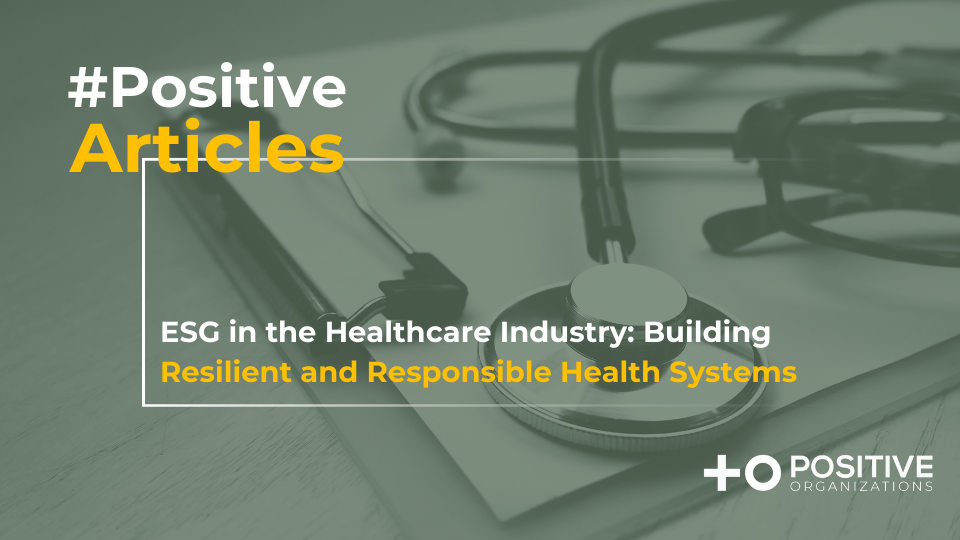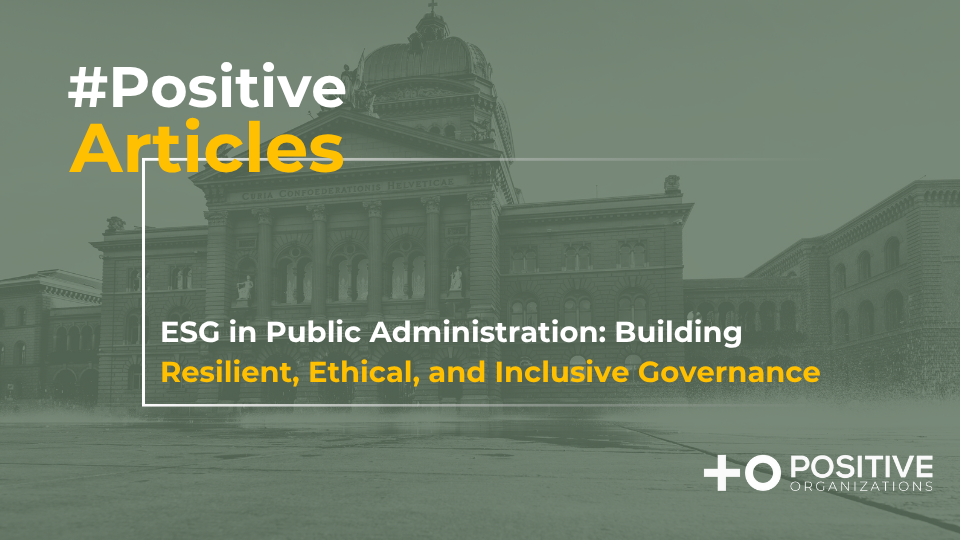.png)

The healthcare industry plays a critical role in society—delivering care, improving quality of life, and saving lives. But as expectations evolve, healthcare providers, institutions, and networks face growing pressure to integrate Environmental, Social, and Governance (ESG) principles into their operations. From hospitals and health systems to insurers and medical device manufacturers, ESG is no longer a peripheral concern—it’s a core component of long-term success and public trust.
Why ESG matters in healthcare lies in the sector’s need to manage both internal operations and its broader impact on communities. Regulatory pressures are intensifying, with emerging frameworks like the EU’s CSRD requiring greater ESG transparency, including emissions reporting, equitable access, and workforce diversity. Stakeholder expectationsare also evolving—patients, regulators, investors, and employees increasingly demand ethical, inclusive, and sustainable healthcare services. ESG performance has become a marker of financial and operational resilience, closely tied to risk management, efficiency, and investor confidence. Additionally, workforce priorities are shifting, as healthcare professionals—especially younger generations—seek to work for organizations that uphold strong environmental and social values.
However, integrating ESG in healthcare is not without its challenges. Many organizations face obstacles such as limited internal resources, fragmented data systems, lack of ESG-specific skills, and cultural resistance to change. Recognizing and addressing these barriers is essential to avoid superficial commitments and ensure real, lasting progress.
Implementing and reporting ESG in healthcare requires a structured and transparent approach. It begins with developing an ESG strategy that identifies sector-specific risks—such as patient access, high energy consumption, or staff burnout—and translates them into measurable, actionable goals. A typical process includes conducting a double materiality assessment, prioritizing key issues, setting time-bound KPIs, and engaging internal stakeholders early. Standardized reporting is essential to ensure consistency and regulatory readiness; aligning with frameworks like GRI, ESRS, and TCFD helps organizations communicate progress credibly and comparably. Engaging stakeholders throughout the process—from patients and healthcare professionals to payers and policy makers—is key to building trust and ensuring that ESG initiatives address real needs and generate lasting value.
Among the environmental impact reduction measures in the healthcare sector, the use of anaesthetic gases with low global warming potential (GWP), combined with gas scavenging and recovery systems, represents a relevant best practice. This approach contributes to minimizing both greenhouse gas emissions and the release of substances into the ambient environment.
The value of ESG integration in healthcareis both strategic and measurable. Organizations that embrace ESG see enhanced reputation and increased patient loyalty, as communities gravitate toward providers that reflect their values. They also build stronger resilience to regulatory and financial risks, ensuring stability in an evolving landscape. ESG-driven improvements lead to greater efficiency and innovation in service delivery, optimizing both care outcomes and operational performance. Internally, a clear ESG commitment supports staff retention and attracts top talent who seek purpose-driven workplaces. This is especially critical in a sector where burnout, turnover, and skills shortages are acute. Ultimately, integrating ESG aligns healthcare providers more closely with public health objectives, reinforcing community trust and long-term impact.
At Positive Organizations, we support healthcare providers in transforming ESG goals into concrete actions. Whether you're a hospital network, insurer, medical device supplier, or care provider, we tailor our approach to your unique challenges.
We help you assess and reduce your environmental impact through carbon audits and resource planning, guiding your transition toward climate-smart operations. On the social front, we support the development of strategies that promote diversity, equity and inclusion (DEI), staff well-being, and health equity—ensuring your values are reflected in both policy and practice.
Our governance and compliance services help establish ethical codes, risk management systems, and ESG policies that align with international standards and patient expectations. We also work to strengthen sustainability across your procurement chain, enhancing supplier performance in areas such as ethical sourcing and emissions monitoring.
In terms of transparency, we assist with ESG reporting and communication, ensuring your disclosures meet frameworks like GRI and ESRS while resonating clearly with patients, staff, and regulators. Inaddition, we offer innovation labs and ESG training to build internal capacity and foster a culture of continuous improvement and leadership in sustainable healthcare.
What patients want matters. Integrating ESG means not only minimizing harm, but actively enhancing patient experience—whether by reducing wait times through resource efficiency or by ensuring equitable treatment access across communities. In the end, doing good for the planet and society means doing better for your patients.
Ready to lead the change?
Let Positive Organizations guide your healthcare business toward a moreresilient, ethical, and sustainable future—one where doing good is simply part of doing business.
Start Your
Journey Today









.png)




